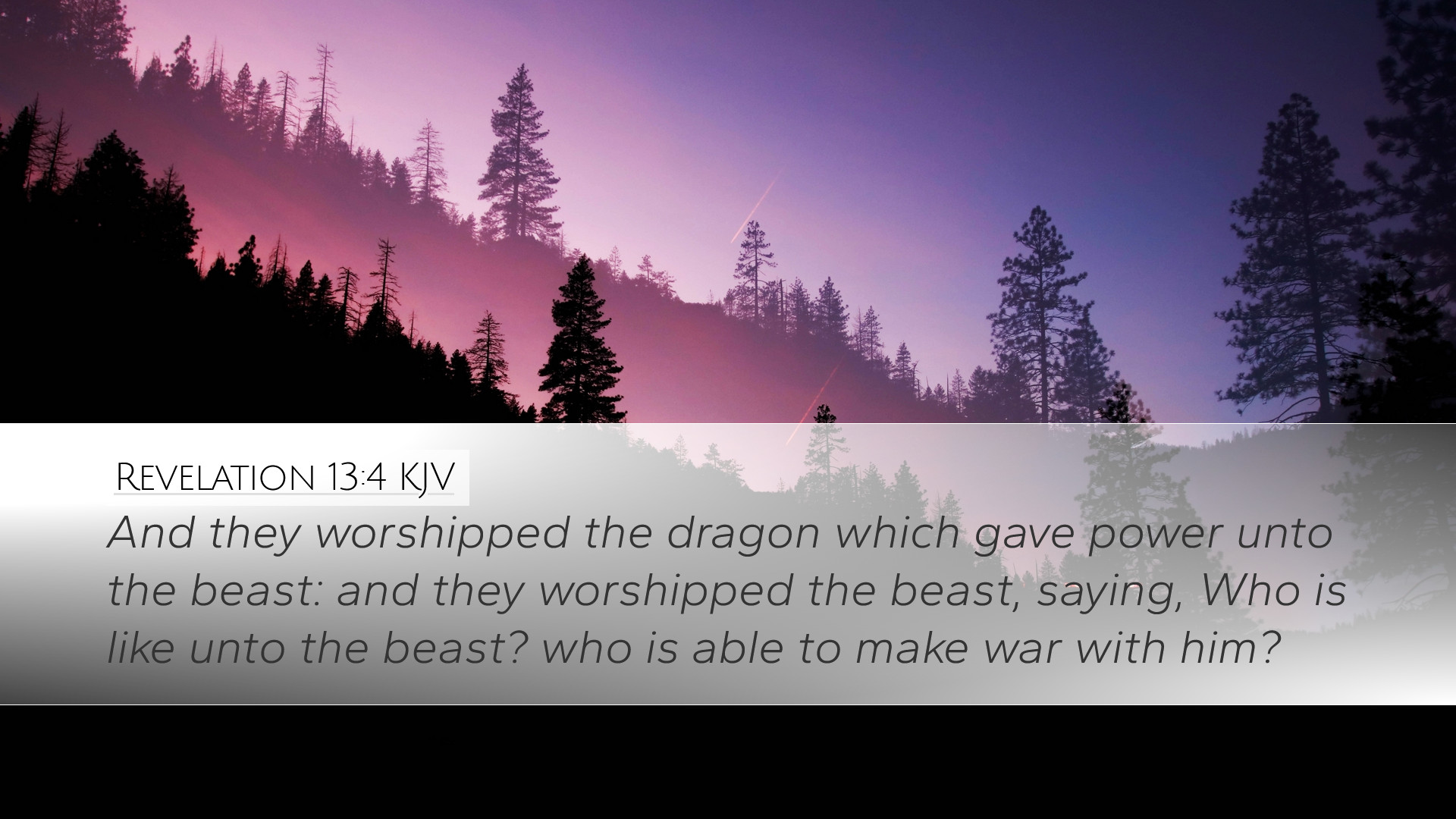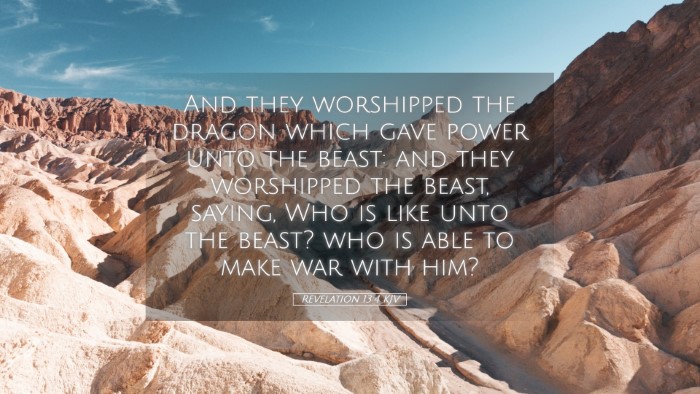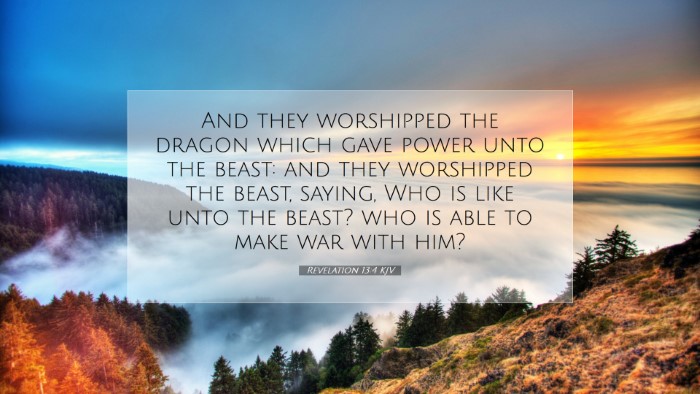Commentary on Revelation 13:4
Text of Revelation 13:4 (KJV): "And they worshipped the dragon which gave power unto the beast: and they worshipped the beast, saying, Who is like unto the beast? who is able to make war with him?"
Introduction
The passage in Revelation 13:4 features prominently in apocalyptic literature, depicting the dynamics of worship and power in a context where spiritual and political forces collide. Understanding this verse requires an exploration of its themes: idolatry, authority, and the nature of the beast.
The Dragon and the Beast
Symbolism of the Dragon: The "dragon" in Revelation typically represents Satan or the adversarial forces opposed to God. Matthew Henry notes that the dragon gives power to the beast, illustrating the chain of authority in the spiritual realm. The followers of the dragon worship him, indicating a reversal of the divine order where the creation seeks power from the deceiver.
Nature of the Beast: The "beast" itself is often interpreted as a symbol of oppressive political power, potentially embodying historical figures or systems that have persecuted the Church throughout ages. Albert Barnes emphasizes that the beast represents a satanic authority that opposes Christ’s kingdom, drawing in those who are spiritually misled.
The Act of Worship
Worship in Context: Worshipping the dragon and the beast signifies a profound spiritual deception. Adam Clarke highlights that this worship indicates a loyalty or subservience to evil powers. The question raised, "Who is like unto the beast?" suggests an acknowledgment of its might and authority, reflecting a common ancient Near Eastern practice of glorifying rulers.
Idolatry in Modern Context: This theme of idolatry remains relevant today. The contemporary believer is often challenged by modern ‘beasts’—idols of power, fame, and wealth—that demand allegiance and worship in various forms. The allure of these entities can overshadow the true worship of God.
The Challenge of Resistance
Spiritual Warfare: The verse may evoke a feeling of despondency; however, it also provides an essential call to spiritual vigilance. As Matthew Henry observes, the existence of such powers necessitates a response from believers. Spiritual resistance becomes imperative in facing the deceptions and challenges posed by ‘beasts’ in whatever form they manifest.
Call to Believers: This passage invites pastors and students to cultivate discernment in their congregations, teaching that worship is due only to God. The call to resist idolatry requires an active confrontation with the lies propagated by the dragon and its agents.
The Great Contrast
Worship of the True God: The act of worship in the passage starkly contrasts with the worship Christians are called to. Revelation 5:12 shows the celebration of the Lamb. The verse highlights the danger of misplacing worship. Albert Barnes reflects on the inevitability of worship being directed either toward God or toward false deities.
Theological Implications: This worship delineates the boundaries of allegiance. The tensions in Revelation serve as a reminder that the ultimate victory belongs to God’s kingdom regardless of how formidable the beast appears. Believers are assured that despite the beast's power, it is a temporal authority subject to divine judgment.
The Role of Community
The Church’s Responsibility: The collective impact of communities of faith in resisting the allure of the beast matters much. Pastors are to shepherd their flock amidst these temptations, fostering a community that encourages worship solely of the Almighty. Adam Clarke stresses the importance of unity in faith practices to empower individual believers against societal pressures.
Encouraging Faithfulness: The faithfulness of believers acts as a testimony against the backdrop of rampant idolatry, affirming the supremacy of Christ over all adversarial forces. The role of the Church as a light in darkness is vital, embodying resistance through worship and acts of righteousness.
Conclusion
Revelation 13:4 challenges the perceptions of power and authority, urging faith communities to reflect on whom they worship and why. The intertwining of spiritual and worldly power continues to be a theme central to the believer’s experience. As Matthew Henry, Albert Barnes, and Adam Clarke collectively emphasize, the ultimate call is to steadfastness in worshiping the true God, resisting the dragon and its beasts, and fostering a community dedicated to righteousness.


